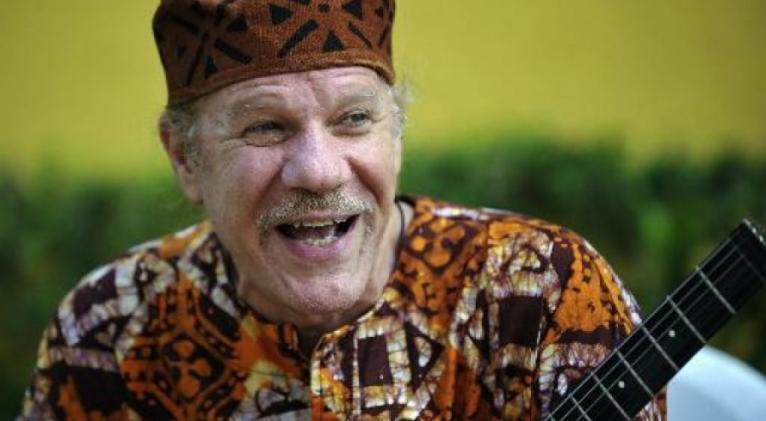Renewed ties trigger mixed emotions for Americans in Cuba
especiales

"I thought I would die before it would happen," said Rena Perez, 80, on the eve of the official resumption of diplomatic ties between the United States and Cuba.
On Monday, for the first time since 1961, the Cuban red, white and blue flag will fly over Havana's newly upgraded embassy in Washington, just a stone's throw from the White House.
The US interests section in Havana will meanwhile be upgraded to a full embassy, a hugely symbolic moment.
Perez is better placed than many to assess what it means for Americans and Cubans on the streets.
She is a rare thing -- an American who arrived in Cuba 56 years ago with her Cuban partner and has called the communist island home ever since.
Perez hopes renewed ties -- frozen for half a century -- could address Cuba's housing crisis, but is also worried that a rush of development could spoil the "beautiful" country she now considers home.
"Cuba lacks 700,000 homes. Somebody will make money reconstructing Cuba," she told AFP, admitting she was "happy... and worried," about what the future might bring after the historic rapprochement.
"The US wants to make, and will make, a hell of a lot of money," she added, skeptically.
While Perez sees economic opportunities for some, medical student Pasha Jackson, 32, hopes it will mean improved health care in Cuba.
Jackson, like Perez, is among the small community of American expats in Cuba.
And like Perez, she received the news of renewed ties with a dash of ambivalence.
"What will change with the opening of the embassy? I honestly don't know. But I have hopes," said Jackson, who was born in Oakland, California and has been in Cuba for six years.
She said both countries have a lot to learn from each other when it comes to providing adequate medical care.
"Being poor where I live, in Oakland, means being sick," said Jackson, a student at the Latin American School of Medicine -- popular among Americans in Havana.
"I would love a universal health model... I'm thinking about my community."
- Cultural reference points -
Fellow American medical student Graham Sowa said he was delighted at the prospect of a greater American presence in Cuba, and is happy that Cuba will get the recognition he feels it has been lacking.
"I'm glad the US finally sees Cuba as an independent country, with which it's possible to deal in equal terms," Sowa said.
"I would like to see our flag flying as a symbol for the renewed relations with our neighbor. We have much more in common than differences."
With the two countries warming to each other, Sowa said residents of both countries may find more similarities than differences -- especially when it come to popular culture.
Despite lack of widespread -- or fast -- Internet access in Cuba, American television series such as "Game of Thrones" and musicians like Jay-Z are popular, offering Cubans a cultural touchstone and common bond with their US neighbors.
Musician Pablo Menendez, originally from California, has been living in Cuba for 49 years.
He said the Cuban and American people have always been close -- even when politicians tried to drag them in opposite directions.
"Politicians are always very slow. Culture workers get along very well," he said.
"The US and Cuba are two essential poles for the Afro culture."
Some Americans, such as Menendez, spoke of the difficulties in getting visas for their Cuban spouses to visit America, and hope that may soon change. But they remain doubtful.
New Yorker Conner Gorry has lived in Cuba since 2002 and would like to travel more easily -- that means an easier visa process and cheaper flights between the United States and Cuba.
"Raising the flag means nothing to me until my family can come here legally," said Gorry, who married a Cuban journalist-blogger and is founder of the first American literary cafe in Cuba.
Gorry said the current euphoria of the media for the restoration of relations was somewhat annoying.
"Opening the embassy has no concrete implications," said Gorry.













Add new comment